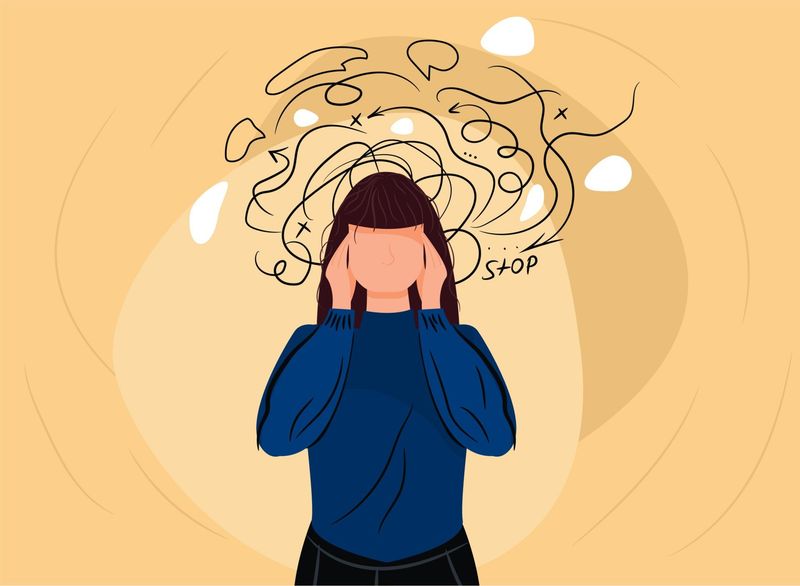Emotional hangovers can catch us off guard, leaving us puzzled about our emotional state. They often arise after intense emotional experiences, where our brains and bodies process feelings long after the moment has passed.
Understanding these emotional triggers and learning coping strategies is crucial for maintaining emotional well-being. This post explores 17 common reasons behind emotional hangovers and offers practical ways to cope with them.
1. You Said Too Much in the Heat of the Moment
Words can sometimes escape us before we’ve had a chance to think them through. It’s in the heat of the moment that we often say things we later wish we hadn’t. This emotional release can lead to an emotional hangover, where we replay our words repeatedly, wondering about the impact they had.
The key to coping is to first acknowledge the feelings of regret or guilt. Reflecting on why the words were said can provide insight into underlying emotions. Reaching out to the person involved and offering a genuine apology can also help in healing and moving forward, providing closure and understanding to both parties involved.
2. You Didn’t Say Enough—And It’s Eating You Up
Sometimes it’s not what we said, but what we didn’t say that lingers. Holding back words can create a weight that feels heavier over time. Perhaps it was a fear of conflict or simply not finding the right moment.
This silence can turn into an emotional hangover, where the unsaid words echo in our minds. To cope, it’s essential to identify the reasons for holding back. Journaling can be a therapeutic way to articulate those unsaid thoughts, providing relief and clarity. If possible, consider opening up a line of communication with the person involved to express those thoughts, fostering a deeper connection.
3. Social Situations Took More Out of You Than Expected
Social gatherings can be unexpectedly draining, especially for those who lean towards introversion. The noise, the conversations, the need to be ‘on’ can leave one feeling emotionally exhausted.
This emotional hangover can be managed by recognizing the need for solitude to recharge. Planning downtime after social events can provide a necessary buffer to process and regroup. Engaging in calming activities, such as reading or meditating, can also aid in replenishing emotional energy, leaving one refreshed and prepared for future interactions.
4. You Relived an Old Argument in Your Head
Old arguments have a way of resurfacing, playing like a broken record in our minds. The emotional residue can cloud our present moment, leading to an emotional hangover. It’s the unresolved tension that often keeps these memories alive.
Addressing this involves recognizing what triggers these memories. Practicing mindfulness can help anchor the mind in the present, reducing the pull of past arguments. Seeking closure through conversation or writing can also disperse lingering emotions, freeing the individual from the cycle of repetition.
5. Someone Else’s Mood Pulled You Under
Emotions are contagious, and sometimes we absorb the feelings of those around us. When someone close is experiencing strong emotions, their mood can inadvertently affect us, leading to an emotional hangover.
Protecting one’s emotional space is crucial in these situations. Setting boundaries while offering support can prevent emotional drain. Practicing empathy without absorbing the other’s emotions allows one to remain supportive yet emotionally grounded. Taking a step back to engage in activities that uplift one’s mood can help restore emotional balance.
6. You Ignored Your Gut… Again
Ignoring our intuition can leave us feeling disconnected from ourselves. Our gut feelings often guide us towards decisions aligned with our values and desires. When ignored, it can lead to an emotional hangover characterized by unease and doubt.
To reconnect, one must start listening to their inner voice. Taking time to tune into one’s feelings and trusting them can provide clarity and confidence. Reflecting on past decisions and their outcomes can also reinforce the importance of trusting one’s instincts in the future.
7. You Were Too Polite and Now Feel Drained
Politeness often masks true feelings, leading to emotional exhaustion. We aim to keep the peace, sometimes at the expense of our own authenticity. This can leave us feeling drained and disconnected.
To combat this, it’s important to find a balance between politeness and honesty. Expressing genuine thoughts respectfully can prevent emotional build-up. Practicing assertiveness is key, as it allows one to communicate needs without compromising integrity. This balance fosters healthier relationships and reduces emotional fatigue.
8. You Overexplained Yourself Until You Felt Small
Overexplaining can stem from a place of insecurity, where one feels the need to justify or defend their actions. This can lead to feeling diminished, as if one’s worth is questioned.
Recognizing the pattern of overexplaining is the first step towards change. Building self-confidence and trusting one’s decisions can reduce the need for excessive explanation. Engaging in affirmations and surrounding oneself with supportive individuals can reinforce a sense of self-worth, diminishing the impulse to overexplain.
9. You Got Stuck Playing Peacemaker
The role of peacemaker can be a heavy burden, especially when caught between conflicting parties. The emotional toll of mediating can result in feeling overwhelmed and stressed.
It’s essential to set boundaries and recognize when to step back. Prioritizing self-care and seeking support from others can alleviate the pressure of being the peacemaker. Encouraging direct communication between parties involved can also reduce the need for mediation, allowing for more balanced interactions.
10. You Pretended to Be Fine When You Weren’t
Wearing a facade of strength can be exhausting, especially when feelings tell a different story. Pretending to be fine often leads to an emotional hangover, where suppressed emotions rise to the surface.
Acknowledging one’s true feelings and finding a safe space to express them is crucial. This might involve talking to a trusted friend or journaling thoughts. Embracing vulnerability in a supportive environment can lessen the emotional burden and foster genuine connections with others.
11. You Spent the Day Making Everyone Else Comfortable
There’s satisfaction in making others feel comfortable, but it can also be exhausting. Tending to others’ needs at the expense of one’s own can lead to an emotional hangover.
It’s important to strike a balance by prioritizing self-care. Taking moments to recharge, even during busy gatherings, can sustain energy levels. Encouraging others to contribute to the comfort can also distribute the responsibility, allowing for a more enjoyable experience for everyone involved.
12. Your Boundaries Were Crossed—And You Let It Slide
Quando fronteiras are overstepped, it can leave one feeling vulnerable and unsettled. Allowing others to repeatedly cross these lines can result in an emotional hangover filled with frustration and resentment.
Recognizing the importance of boundaries and learning to assert them is vital. Communicating clearly and confidently about limits can prevent future overstepping. Seeking support or guidance on boundary-setting can also empower individuals to maintain their personal space and emotional well-being.
13. You Didn’t Feel Heard
Not feeling heard can be isolating, as if one’s voice doesn’t matter. This can create an emotional hangover fueled by frustration and sadness. It often stems from interactions where one’s thoughts or feelings were dismissed or overlooked.
To cope, it’s crucial to find spaces where one’s voice is valued. Engaging in open dialogues with empathetic listeners can validate experiences. Practicing active listening can also enhance communication skills, fostering mutual understanding in future interactions.
14. You Tried to Keep the Peace at the Cost of Your Peace
Striving for peace often involves compromise, but when it consistently comes at the cost of one’s own peace, it leads to an emotional hangover. The weight of constantly sacrificing self-comfort can be burdensome.
Finding balance is essential. It’s important to evaluate the situations where peacekeeping is necessary and where personal peace should be prioritized. Practicing self-awareness and mindfulness can help maintain inner peace while navigating external conflicts.
15. You Went Back Into an Old Emotional Pattern
Old habits die hard, and slipping back into familiar emotional patterns can feel like a setback. Whether it’s reacting defensively or shutting down, these patterns can lead to an emotional hangover.
Recognizing these patterns is the first step toward change. Self-reflection and identifying triggers can help in developing new, healthier responses. Seeking support through therapy or support groups can also provide guidance and accountability in breaking old patterns.
16. You Took On Someone Else’s Stress as Your Own
Empathy is a beautiful trait, but taking on someone else’s stress can be overwhelming. The emotional weight can blur the line between one’s own feelings and those absorbed from others.
It’s important to establish clear emotional boundaries. Recognizing the difference between support and absorption can prevent emotional burnout. Practicing self-care rituals, such as meditation or exercise, can help release absorbed stress, maintaining emotional well-being.
17. You Felt Deeply… And Didn’t Have Time to Process It
Life moves fast, and sometimes emotions are felt deeply without the chance to process them. This can leave an emotional hangover, lingering like an unfinished story.
Finding time amidst the chaos to reflect on emotions is crucial. This might involve setting aside quiet moments for introspection or engaging in creative outlets such as writing or art. Allowing oneself the time to process can lead to greater emotional clarity and healing.


















